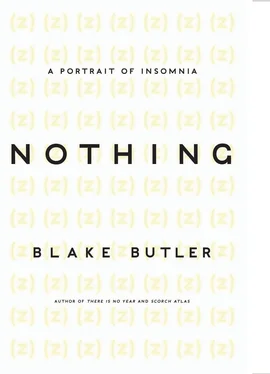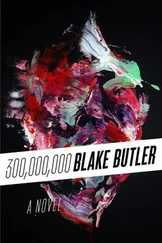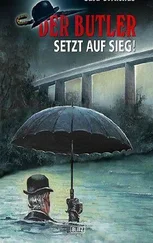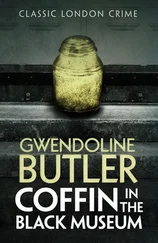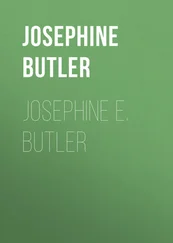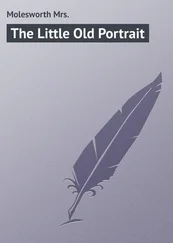] FOLLOW THE SOUND
The first door along the hall is your first bedroom, with no surface windows in it, as had hid you from the light. Overhead, a skylight looks for something: though outside the sky is flat and unrelenting: more stupid paper. This room, too, has been filled full, not with junk or selves or food, but air — the air breathed in while you were sleeping, so thick you can’t fit through the frame. The air appears at first as if you could go right in, but when you press against the space is hard — the room does not want you in it. It sticks to your skin where you come bumping, caged like glass and very warm. Among the glass the hour gleaming, gone hours hoarded, silent. It eats the wet out of your eyes — a spiraled putty threading through into your skull where those same hours have been hidden, waking, barking, until again you turn around…
The hallway, there again, has become split into several, broken up along the light inside the residued refraction of the glass room held — though at certain angles, as with eyes closed, you still see only one hallway made there again inside the house — in the manner of any day’s procession — you go on.
At the hall’s end there are three doors. Of the doors, where they focus, two of them are closed, their seams walled off and sealed in, fit flush on the house. One, you recall, where you sister grew up at night beside you, walls between the two, shared air, her own body somewhere else now, sealed in or removed from the immediate surroundings, where you knew her best; your shared blood’s age; the other, where your parents slept the evenings, breathing through their bodies into a cloud above the bed, and doors therein, beyond the bed, leading elsewhere, surfaces around holes into the ground. Behind each of these doors, a breathing music, so loud it does not occur.
The third room, left wide open, emits an awful rattled hum: a noise unto itself and almost scratching like stuck records, teeth on teeth. You feel a spasm hit your jaw — a screaming in your fingers, in your nostrils, in your lungs — words wanting out to fill and match the absence: nothing.
Your nose and eyes and ears are gushing blood now.
] FOLLOW THE SOUND
Through the third door, there is a darkness. Awash under a stink. As you come through the door closes behind you. Then there is no door. All you can see here are the mirrors licked with low glow on both sides of where for all those years there was the bed — the bed you slept through well beyond puberty, half a bunk set, the other half of which was never used — as if a twin had been meant to be in it and you waited — the twin forever in an absence and alive. This same bed where you saw the boulder and learned to not sleep and so would listen to the nothing, your skin around you tight. Here the bed does not appear but in those mirrors, reflected back and forth between the two. Where the bed should be to make the image, another darkness, deeper, bending.
You go to lie down on the bed despite its absence. You stretch your arms and legs into the space where it had been and you go flat. Your brain flashes alive with words hid in a book here nowhere beside you — about how once the body has become horizontal it is impossible to knock down.
The darkness holds your size. It smothers at you, through your appendages and sternum, knowing how you go. Knowing the inches, and the holes where, and the latest cells, which it takes off. It unwraps you gently, turning over, taking bit by bit what you remain — placing silence where the words are. The more you want the more it gives you — the less need for a name.
Upon the bed, loosing and hungry, the sound so loud it seems a silence rises, muddied in counted years. It burns your ears with its impression, sudden, though it never was not there, and the ache of where it hits against your skin, in knowing, is a pleasance. Is a rowing. Is a wall. It deletes the house around you. There is no house. There is a light.
In the light, another person appears standing.
] FOLLOW THE LIGHT
As you approach, still horizontal, still in the darkness, lying down, you see that instead of standing the body is seated. Instead of facing you, it remains facing away. The light around the skull and shoulders of the person is not a sun, a bulb, or a horizon. It spills forth from a machine. An oblong screen around this other body, around this turned head, still, framed in gleam.
The speed of your approach, as you grow closer, quickens, as would disease. As would time when time is needed. As would any wanting.
In the light there you are there there.
]
You are me.
You are seated, stuck, before this machine, feeding you color. Your fingers forced against some buttons, sticky, unlabeled. This machine drinking from your body, an offering unto the light surrounding light surrounding. Your arms are heavy, older than ever. In your flesh, absence of sound.
You can hear, you think, the slew of rooms you came through somewhere behind you, still there, squashed and wanting in. Those several someones watched and washing, behind, by now, so many doors. Though, for each insistence of that age of sound, on the glowing screen, the machine responds — its blinking cursor in eternal question, replicating in and of, around you, filling each inch with its own speech: each tender toning still a cursor, in iteration, made to wait.
]
The cursor blinks on and off on some horizon. Blown up and tiny, in the heart of some long want — as commencement of an ending — of some endless, nameless name.
]
Among the light you sit inside our body.
Among the white you start to type.
American Psychiatric Association. Diagnostic and Statistical Manual of Mental Disorders (DSM-IV) . 4th ed. Washington, DC: American Psychiatric Association, 1994.
Ascher, L. M., and David E. Schotte. “Paradoxical Intention and Recursive Anxiety.” Journal of Behavior Therapy and Experimental Psychiatry 30, no. 2 (1999): 71–79.
Bachelard, Gaston. The Poetics of Space . New York: Beacon Press, 1994.
BaHammam, Ahmed. “Polysomnographic Characteristics of Patients with Chronic Insomnia.” Sleep and Hypnosis 6, no. 4 (2004): 163–68.
Barnes, Djuna. Nightwood . New York: New Directions, 2006.
Barthelme, Donald. Sixty Stories . New York: Penguin, 2003.
Basta, Maria, George P. Chrousos, Antonio Vela-Bueno, and Alexandros N. Vgontzas. “Chronic Insomnia and the Stress System.” Sleep Medicine Clinics 2, no. 2 (2007): 279–91.
Beckett, Samuel. Stories and Texts for Nothing . New York: Grove Press, 1994.
Bonnet, M. H., and D. L. Arand. “Hyperarousal and Insomnia: State of the Science.” Sleep Medicine Reviews 14, no. 1 (2010): 9–15. doi:10.1016/j.smrv.2009.05.002.
Borges, Jorge Luis. Collected Fictions . New York: Penguin, 1999.
Brackman, Roman. The Secret File of Joseph Stalin: A Hidden Life . New York: Routledge, 2001.
Brown, John. “Bloodletting in Headache with Insomnia Due to Congestion of the Brain.” The British Medical Journal 1, no. 992 (1880): 13–14.
Cage, John. Silence: Lectures and Writings . Cambridge, MA: MIT Press, 1970.
Calvino, Italo. If on a winter’s night a traveler . New York: Harcourt Brace, 1981.
Carson, Anne. Decreation: Poetry, Essays, Opera . New York: Knopf, 2005.
Cioran, E. M., and Jason Weiss. “An Interview with Cioran.” Grand Street 5, no. 3 (1986): 108.
Читать дальше
